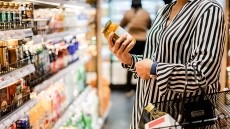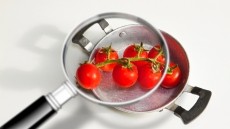Ethical label proliferation and competition cause concern
Consultancy Two Tomorrows, which this year published its first Tomorrow’s Value Rating on food manufacturers’ sustainability initiatives, hosted the roundtable in London in September. It has identified some 600 ethical certification labels and schemes currently on the market.
One big problem raised by participants is the association between certain ethical labels and major food and beverage brands.
For example, if a major company adopts Fairtrade, there is so much marketing around it that competing brands may not want to chose the same logo, Rob Pearson, consultant at Two Tomorrows told FoodNavigator.com
But he said that having more labels is not the way forward – and stopping more from coming on-line is in the hands of brand-owners and retailers.
The market “at least has to stop growing”, he said. There may also be scope for consolidation and cooperation between labels, and to take the market in a more pre-competitive direction.
“There is still too much talk about competition and market share between schemes. Many have the same goal in terms of what they originally set out to do.”
Attendees at the roundtable, which took place under Chatham House rules, included representatives from Bacardi, Green and Black, the Co-Op, Coca Cola, Defra and Carbon Gold.
Rob Cameron, CEO of Fairtrade Labelling Organizations, was also present. Pearson said Cameron is very involved in ISEAL, an initiative to foster cohesion between labelling schemes, and would take the conclusions of the roundtable to the board meeting.
Own labels?
Pearson said the thorny issue of manufacturers’ own-brand certification schemes, used in preference to third-party schemes, was also raised. Participants were asked whether it really confuses consumers, and whether they really understand the difference between third party and own label schemes?
Brand owners present said that they know their supply chains best, and that provided they are confident that they have transparency, it should not be a problem.
Ingredient availability
Pearson also said that there are indications food ingredient companies are lagging behind in offering sustainable ingredients. Two Tomorrows has recently completed a mini-Tomorrow’s Value Rating on ingredient companies’ sustainability. While the findings are not yet published, it seems that some major companies are on-board but there is a “big hole” where others are not.
Given how important sustainability issues are for retailers and manufacuturers, Pearson said he “can’t understand why not feeling the pressure”.
Two Tomorrow’s report from its roundtable is available online at http://www.twotomorrows.com/news/food-and-beverage-roundtable-report





















